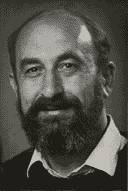
'Prince Charles and Islam' (27 December 1996)
Like Prince Charles, I am a great admirer of Islam. But, unlike his Royal
Highness, I have a problem. If Islam is so admirable in theory, why are Islamic
states so dreadful in practice?
He was careful, in his expression of praise, to add that he was talking of
‘Islamic Civilisation at its best’. But where does one find it today?
In the Sudan? Iraq? Syria?
Afghanistan? Iran? Libya? Indonesia? The Yemen? Chechnya? Pakistan? Saudi Arabia?
There are over 50 Islamic States – more than 20 of which are members
of the Arab League – comprising a population of almost a billion, and
most are a byword for cruelty, incompetence and corruption.
It was not always so, The Ummayad Caliphs of Damascus, the Abbasids of Baghdad,
the Fattimids of Cairo, were all beacons of light at a time when Europe was
steeped in darkness; and there was a marvellous flowering of Islamic culture
under Suleiman the Magnificent in the sixteenth century, and under the Indian
Moguls in the seventeenth, after which Islam sank into almost inexorable decline.
It has been enjoying something of a revival in our time but, as I have suggested,
it has not made the world a happier place.
The fact is, few religions, no matter how sublime their precepts, work out
that well in practice. One may think fondly of Christianity in decline, but
it was often merciless while in power.
‘Render unto Caesar that which is Caesar’s and unto God that which
is God’s was fine as far as it went. But it did not go very far once Constantine
converted to Christianity and started acting in the name of God.
The first crusade, which left a trail of Jewish blood across the face of Europe,
and which culminated in the massacre of Jews at Muslims in Jerusalem –
all in the name of the Prince of Peace – was a crime against humanity.
The Fourth Crusade, against the Albigensian heretics, was another. The expulsion
of Jews and Muslims from Spain was a third, and, until our own times, there
was nothing to match the savagery with which Christian butchered Christian in
the so-called ‘wars of religion’ in the seventeenth century.
Christianity became a moral force again only when it ceased to be a political
one. When Stalin asked ‘how many divisions does the pope have,’
he understood the whole situation. The power of the pope lay precisely
in the fact that he had none.
Judaism, I’m afraid, is also one thing in theory and another one action.
We tend to look back to the days of David and Solomon as the golden age of our
history. It was certainly the most exciting age, but we acquired a moral influence
out of all proportion to our number only after we ceased to be a political entity.
The governing precept of Jewish life as defined by Zechariah – ‘Not
by might, nor by power, but by my spirit sayeth the Lord of Hosts’- dates
from the beginning of our dispersion.
Judaism is certainly wholesome and benign as long as it is distant from power.
In Israel, where it exercises considerable power, it is neither one nor the
other. Those who claim to speak in it’s name are often indifferent to
indifferent to the rights of the Arab, and hostile to the secular Jew –
or to Jews who don’t embrace their brand of Judaism.
They also have a primitive view of justice, a limited concept of ethics, no
interest in other cultures, and if – heaven forbid – they should
ever become a majority and attain real power, Israel would become as backward
and barbaric as Christendom was, and Islamic states are.
But to return to Prince Charles. He is sickened, as any reasonable person might
be, by many aspects of contemporary life – the mindless search for instant
gratification, the indifference to tradition, the decline in authority, the
absence of discipline or restraint, the rampant materialism – and he evoked
the spiritual claims of Islam in order to temper the excesses of secularism.
He was right in his diagnosis, but wrong in his remedy. Islam is indeed rich
in qualities which we could all emulate, but it can also display an assertiveness,
aggression and intolerance which are alien to the British character and, if
the country should need guidelines to find its way back to a more wholesome
way of life, they are to be found in it’s own Judaeo-Christian traditions.
One final thought. Adultery is a capital offence in many Islamic countries and
one daren’t think what fate might have befallen His Royal Highness had
he lived in, say, Saudi Arabia.
|